The New York Times comments:
Peter Baker for the New York Times dated 11 March, 2023 writes, “finally, there is a peace deal of sorts in the Middle East. Not between Israel and the Arabs, but between Saudi Arabia and Iran, which have been at each other’s throats for decades. And brokered not by the United States but by China.
##########################################
N. P. Upadhyaya ( Aryal)
Biratnagar: In what could be justifiably taken as a “diplomatic triumph”, China has now established its international image as a “peace maker” and a healthy negotiator as the country brought about a qualititative changes in the Middle East somewhat estranged politics when the country made serious efforts for conciliation for the normalization of the ties in between Riyadh and Tehran in Beijing.
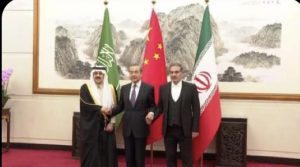
It was a grand normalization though through the kind courtesy of Beijing’s subtle diplomacy. Beijing has reasons now to influence the Middle East politics by “default”.
Background:
Beijing definitely exploited from the long drawn animosity in between the US and Iran and also from the strained tied in between the Saudi Kingdom with the Islamic Republic of Iran.
Notably, the Kingdom of Saudi Arabia and Iran were not in good terms for several decades. If the Saudis enjoyed cordial ties with the USA then Iran was taken by both the US and Saudis as “repulsive State” for their own exclusive political, social and religious reasons.
The US-Iran differences had nuclear proliferation reasons as well.
The Iranians defied the US restrictions on Iran as regards the nuclear issues which is why the bilateral ties got even more and more edgy over the years.
To put it without stopping, if the US had extended its security umbrella to the Saudis for several decades then the Iranians were taken as an object of hatred by the US for a variety of political reasons.
The USs heavy and overwhelming engagement in Saudi Arabia too has had its own sort of negative impact on Riyadh-Tehran relations. In fact, Iran’s anger doubled against the US-the bête noir of Washington which is what widened the gulf in between the two-Saudis and Iran.
The Saudis too distanced itself with the Iranians as per the implied wishes of the US and the animosity thus grew more and more.
It was almost a triangular fight in between Washington, Riyadh and Tehran in many more ways than one.
In a way the Islamic State of Iran kept itself almost aloof from other States as friends of the US were taken by Tehran as enemy.
It was only the Islamic State of Pakistan which somehow or the other maintained its contact with both Riyadh and Teheran which, as a matter of fact, must have been a challenging diplomatic affair for a Pakistan that bordered troubled Afghanistan and the trouble-maker India in the east.
“Pakistan is located in South Asia. To the south is the Arabian Sea, with 1,046 km of Pakistani coastline. To Pakistan’s east is India, which has a 2,912 km border with Pakistan. To its west is Iran, which has a 909 km border with Pakistan. Afghanistan to the northwest and north ( Wikipedia).
Moreover, Pakistan was the single Islamic Republic in the entire region which had the nuclear capabilities and that must have added to the advantage of Pakistan.
So it was this Saudi-Iranian overly stretched conflict that the US built its power base in Riyadh and informed sources say that the US used to watch the politics of the Middle East by being right inside Saudi Arabia.
Islamic State Iran was not happy with the US presence in the neighborhood for obvious reasons.
Who benefited from the continued brawl in between the US and Iran is anybody’s guess, but yet after the advent of US “liberal and democratic” President Joe Biden, for a variety of political and security reasons, the US almost abandoned Saudi Arabia which may have in all likelihood encouraged Riyadh and Tehran to “normalize” their damaged bilateral ties.
Most convincingly, at the moment, both Saudi Kingdom and the Islamic State of Iran have decided to resume their “diplomatic relations” by opening their respective diplomatic missions in either Capital.
Beijing took the mediatory role which ended with a positive note.
China’s subtle diplomacy in play:
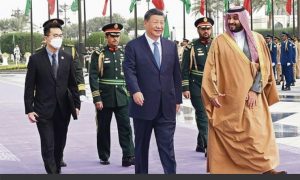
The “normalization of the ties in between Riyadh and Tehran is not at all a one day affair. In effect, the subtle diplomacy came into play when, to recall, President Xi Jinping made a whirlwind tour of the Gulf countries last year (December 7, 2022) and Riyadh rolled out Red Carpet in honor of the Chinese President. The smart third timer Chinese President sensed the pulse beat of both Riyadh and Tehran from its posted diplomats and began making efforts at convincing both the “conflicting” parties to come to the table and sort out their differences to the advantage of the Middle East politics.
Needless to say, Beijing offered the intermediary role to which both Riyadh and Tehran gave a positive nod. Both had trust on Beijing.
However, Beijing had two fold benefits from such normalization. The first being to ensure deeper friendly contacts with both Tehran and Riyadh; and secondly, to assure the countries of the Middle East that China is here which could assist these countries at par with what the US had been doing in the past, more so in providing adequate security to the Saudis and other countries of the region.
The third could be also been to send signals to the US that “China has exploited” from the USs distancing with the Saudis and also from the animosity with the Islamic State of Iran.
Chinese FM Wang Yi was in Iran early last year.
That the “normalization” in between the two conflicting Islamic states was the subtle handiwork of President Xi Xinping is best “advertised” in the joint trilateral statement issued on March 10, 2023 by the three countries, that is, Saudi Arabia, Islamic State of Iran and the mediator China.
The opening statement states reads in part (sic), “In response to the noble initiative of His Excellency President Xi Jinping, President of the People’s Republic of China, of China’s support for developing good neighborly relations between the Kingdom of Saudi Arabia and the Islamic Republic of Iran”.
Interesting is also the fact that if China took the mediatory role, then Iraq, Qatar and Oman also had in their own manner facilitated the talks in between the two: Riyadh and Tehran.
This means that China sensed the rhythm of the entire regional countries and then sought helps from the countries who wished détente in between Iran and Saudis.
Implied is then China has now cultivated deeper ties with the countries not only who have normalized their “alienated ties”, but also has send signals to the countries that China was ready to assist the countries in the Gulf/Middle East should they approach China.
Most importantly and convincingly the joint trilateral statement reads that “The three countries announce that an agreement has been reached between the Kingdom of Saudi Arabia and the Islamic Republic of Iran, that includes an agreement to resume diplomatic relations between them and re-open their embassies and missions within a period not exceeding two months, and the agreement includes their affirmation of the respect for the sovereignty of states and the non-interference in internal affairs of states. They also agreed that the ministers of foreign affairs of both countries shall meet to implement this, arrange for the return of their ambassadors, and discuss means of enhancing bilateral relations”.
This does mean that both Riyadh and Tehran shall open their diplomatic missions in either countries and an era of fresh and cordial friendship will dawn in the Middle East which in many more ways than one had remained captive of the Saudi-Iranian overly stretched high voltage conflict.
The “normalization” attained success simply because the negotiator from China in the entire mediation process saw the presence of seasoned Chinese diplomat Wang Yi who was assisted by Ali Shamkhani from the Iranian side, the Secretary of the Supreme National Security Council and the Saudi Arabia was represented by Musaad bin Mohammed Al-Aiban, Minister of State, Member of the Council of Ministers.
All the three men engaged in the talks did their job well.
China took the prime role.
Keeping the US engrossed in Russia-Ukraine high voltage conflict, China which got a set back from the abject failure of the November 14, 20222, US-China G20 Bali Meet, penetrated deep into the former stronghold of the US in the Middle East and bagged Himalayan diplomatic victory which will go a long way in establishing the role of China as a peace maker in the world more so in the Middle East.
By the way, Chinese President is in Russia on the invitation of the Russian President Vladimir Putin. The two hopefully talk on the Middle East politics apart from the recent events in an around Ukraine.
While in Russia, President Xi said, “ the two countries should further deepen practical cooperation in various fields and strengthen coordination and collaboration on “multilateral platform such as the UN to boost their respective national developments and rejuvenation, and be a bulwark for world peace and stability”.
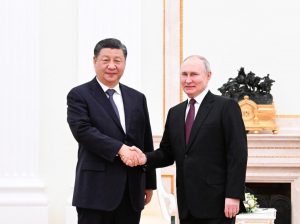 Here China stresses the importance of the UN body which is what could be taken as a mild signal to the US for some exclusive political reasons.
Here China stresses the importance of the UN body which is what could be taken as a mild signal to the US for some exclusive political reasons.
China’s peace plan:
China last month gave a shape to its peace plan which has some 12 points to end the Ukrainian war. Chinese peace plan includes dialogue, respect for all countries’ territorial sovereignty and an end to economic sanctions. Beijing has also advanced the idea of avoiding nuclear escalation.
However, Bejing in a very smart way has not proposed Russia to withdraw its forces.
In response, President Putin has welcomed China’s proposals for peace in Ukraine at a joint press conference with Xi Jinping in Moscow – a plan the west has warned would allow the Kremlin to “freeze” its territorial gains in the country, reports the Guardian dated March 21, 2023.
Putin said while welcoming his Chinese counterpart that, among others, “Russia and China are fighting common threats”.
The meet of the Chinese and Russian Presidents in Moscow subtly signifies sending several signals across the political corridors of politics in the globe mainly the US.
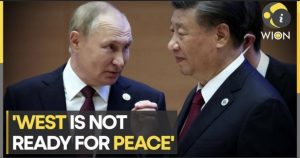
The meet of the two big heads in Moscow and that too when the Ukrainian war has not come to an end has intrinsic political connotations.
Needless to say, Moscow and Beijing are once again in the same wavelength which must have been a cause of serious concern to US.
Back to the story:
The CGTN (CGTN is an English-language news channel based in Beijing) dated March 14, 2023, quotes Wang Yi as saying that “the successful negotiations are a victory for dialogue and peace, and for China. He said the talks are an example of what can be achieved under the global security initiative proposed by President Xi. China’s efforts are also supported by the international community.
Notably, President Xi Jinping was in KSA in December last year and, in February this year had met with Iran’s President Ebrahim Raisi in China.
It was this meet perhaps which provided speed to the “normalization deal”.
As stated earlier, President Xi’s visit to Saudi Arabia on December 7, 2023 acted as a catalyst in initiating the secret talks proceed in between the two conflicting parties together with the prime negotiator-China.
The US reaction amazingly is positive yet:
The US too went out of the way and hailed the Saudi-Iran normalization deal mediated by rival China.
Ali Harb for the Al Jazeera dated March 16, 2023, that United States has described the China-brokered normalization deal between Saudi Arabia and Iran as a “good thing”, despite the message it may send about waning US influence in the region.
“The fact that Tehran and Riyadh sort of decided to bury the hatchet of war is good for everybody,” said Jorge Heine, a professor at Boston University.
“It’s good for the United States. It’s good for China. It’s good for the Middle East.”
Heine, who previously served as Chile’s ambassador to China, said the pact between the two Middle East rivals was China’s “breakthrough into the big leagues of diplomacy”, but that does not mean it is a setback for the US.
The New York Times comments:
Peter Baker for the New York Times dated 11 March, 2023 writes, “finally, there is a peace deal of sorts in the Middle East. Not between Israel and the Arabs, but between Saudi Arabia and Iran, which have been at each other’s throats for decades. And brokered not by the United States but by China.
Baker further adds stating that “this is among the topsiest and turviest of developments anyone could have imagined, a shift that left heads spinning in capitals around the globe. Alliances and rivalries that have governed diplomacy for generations have, for the moment at least, been upended”.
The Saudi reaction:
Dr. Majid Rafizadeh writes for the Arab News dated March 13, 2013 that “the mission of Saudi Crown Prince Mohammed bin Salman to bring peace to the region, enhance regional security and make the Middle East a peaceful environment for everyone to prosper has come true. He says quoting Crown Prince Salman saying Iran and Saudi ties that “They are neighbors forever. We cannot get rid of them, and they can’t get rid of us.
So it’s better for both of us to work it out and to look for ways in which we can coexist.”
Iranian Reaction on fresh deal with Saudi Arabia:
Iranian Foreign Ministry spokesman Nasser Kanaani said that the agreement between Saudi Arabia and Iran could foster regional stability.
He further said that “the agreement will play a key role in convergence and further cooperation among the regional countries”.
Pakistan’s reaction: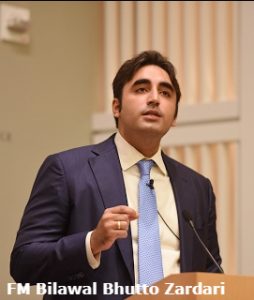
“Pakistan warmly welcomes the agreement reached by the Kingdom of Saudi Arabia and the Islamic Republic of Iran to restore diplomatic relations and the constructive role played by the Chinese leadership in facilitating this agreement,” Bhutto-Zardari said at the Council of Foreign Ministers meeting of the Organization of the Islamic Cooperation (OIC) meeting recently in Mauritania.
FM Bhutto said, “It is time that we join together to restore peace in Yemen, Syria, Iraq and Libya,” and that the OIC must strengthen its security mechanisms to end all conflicts and disputes between Islamic nations”.
Indian scholar laments:
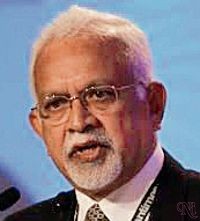
In an article published by the Tribune dated March 24, 2023, MK Bhadrakumar, an Indian national writes of the China brokered Saudi Arabia-Iran deal saying, “India’s sulk over the China-brokered Saudi-Iranian normalisation of diplomatic relations can only be called petulant behaviour. What has happened is an epochal event. Henry Kissinger drew the analogy of his own accomplishment in an extraordinary diplomatic career when, as Secretary of State in the Richard Nixon administration, he helped achieve rapprochement with Beijing amidst its tensions with Moscow”.
Mr. Kumar then says lamenting, “We have been busy building temples in the Emirates while the Sheikhs were heading for China in search of technology”.
Ambassador Kumar thus explains how his country’s diplomacy fails at crucial times.
The fact is that India talks, China delivers. India breaks, and pokes its nose on internal politics of countries in the neighborhood. China, not a reliable partner yet it helps.
The CNN comments:
Mostafa Salem, Adam Pourahmadi and Nadeen Ebrahim, for the CNN dated March 10, 2023, collectively write that the fresh announcement is also a diplomatic victory for China in a Gulf region that has long been considered part of the US’ domain of influence. It comes as the Biden administration tries to notch its own win in the Middle East by trying to broker a normalization pact between Israel and Saudi Arabia”. The CNN adds recalling that “Riyadh severed ties with Tehran in 2016 after Iranian protesters stormed the Saudi embassy in the Iranian capital following the execution of a Shi’ite cleric in Saudi Arabia. Since then, they have fought a proxy war that has embroiled a number of neighboring countries, bringing the region ever closer to war”.
Nepali observers opine that though China seemingly has bagged diplomatic advantage over the rival USA in the MEs regional politics, however, China must not forget that wisdom demands “normalization and reconciliation in its ties with the USA”.
World peace demands the collective good will of both Washington and Beijing.
Concurrently, the US too should laud the efforts made by China that has succeeded in bringing back the two adversaries to negotiating table.
In a nutshell, President Xi Jinping of China cashed “ on appropriate time” from the increasing differences from Riyadh-Washington ties that had surfaced after the advent of President Joe Biden and the normalization of Riyadh-Tehran fractured relations was duly taken up by China right after President Xi’s visit to Riyadh last December, 2022.
The US was not at all happy with Saudi Arabia over the Kingdom’s human rights record and KSA’s increasing ties with China and Russia.
Thus the normalization of the ties in between Riyadh-Tehran speaks only of the continuation of the grand alignments and realignments of the countries across the globe. That’s all.
